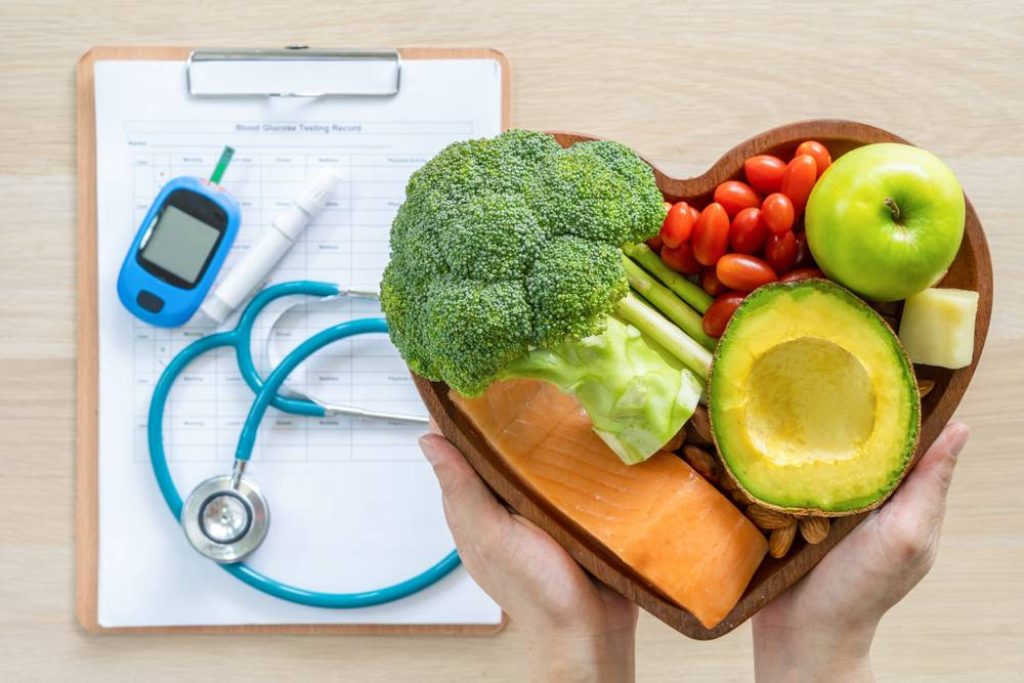
Best Foods For Inflammation Treatment
Mild inflammation naturally occurs in the body as a response to injury, toxin build-up or infection. It is a necessary process that helps the body to heal and fight off invading pathogens. However, excessive inflammation can eventually lead to serious diseases, including heart disease, arthritis, diabetes, Alzheimer’s, and cancer.
Related Topics (Sponsored Ads):
While no food is a magical cure for any disease or condition, increasing the amount of healthy anti – inflammatory foods can play a significant role in reducing chronic pain, discomfort and other symptoms that are associated with inflammation. Taking prescribed medication, reducing stress levels and getting exercise more regularly in conjunction with anti-inflammatory food is also quite helpful.
The following is an in- depth look at the best foods for treating and reducing inflammation in the body.

Fruits and Vegetables
Fruits and vegetables are rich in nutrients, antioxidants, and fiber. However, not all fruits are good for people with diabetes or prediabetes due to their high fructose sugar / glycemic index. Thus, if you are diabetic or pre-diabetic, you will need to be careful in this area, as too much sugar in the blood can cause inflammation.
Consuming a variety of fruits and vegetables has also been strongly linked to a lower risk of chronic diseases and conditions, such as heart disease, diabetes, and cancer. Some of the best fruits and vegetables that contain rich amounts of anti- inflammatory properties include:
● Leafy greens such as spinach, kale, and collard greens are rich in vitamins A, C, E, and K, as well as antioxidants.
● Berries such as strawberries, raspberries, blueberries, and blackberries are rich in anthocyanins.
● Tomatoes are rich in lycopene, which has been linked to a reduced risk of chronic diseases.
● Cruciferous vegetables such as broccoli, cauliflower, and Brussels sprouts are rich in antioxidants and sulfur-containing compounds.
Whole Grains
Whole grains are a fantastic source of fiber and important nutrients such as magnesium, selenium, and B vitamins. They have a lower glycemic index than refined grains, meaning they induce a slower and more sustained rise in blood sugar levels if consumed in moderation. This matters because excessive sugar levels increase body inflammation. Some of the best whole grains to tackle inflammation include:
● Oats: Oats are packed with beta-glucans, a type of anti – inflammatory fiber.
● Brown rice: Brown rice is rich in fiber and magnesium, which has also been linked to reduced inflammation flare ups.
● Quinoa: quinoa is a complete protein, rich in essential fiber, magnesium and antioxidants.
● Whole wheat: bread and pasta are rich in fiber and nutrients, along with a lower glycemic index than refined grains that have been stripped of most
or all of their health benefits.
Healthy Fats
Healthy fats, such as omega-3 fatty acids, have proven to have anti-inflammatory properties, along with nourishing the brain and enhancing overall cognitive function. This means that it can reduce the risk of Alzheimer’s and other forms of dementia. These vital omega 3 fatty acids can be found in fatty fish, nuts, and seeds. Some of the best sources of healthy fats include:
● Fatty fish: Such as salmon, mackerel, and sardines
● Flaxseeds: Are rich in alpha-linolenic acid (ALA), a type of omega-3 fatty acid.
● Chia seeds are rich in both ALA and fiber.
● Walnuts: are rich in omega-3 fatty acids and antioxidants.
Spices and Herbs
For centuries, spices and herbs have been used for their impressive medicinal properties. They are rich in antioxidants, along with well known anti-inflammatory properties. Some of the best spices and herbs include:
● Turmeric: (curcumin).
● Ginger: (gingerols).
● Garlic: (allicin).
● Cinnamon has been shown to have anti-inflammatory properties as well.
Lean Proteins
Protein is essential for building and repairing muscles and other tissues in the body, along with regulating levels of blood sugar and preventing insulin spikes. However, consuming too much of the wrong protein, such as red meat, can increase inflammation. Choosing lean protein sources instead, such as poultry, fish, and legumes, can help reduce inflammation. Some of the best sources of lean protein include:
● Chicken and turkey: Poultry in general is rich in protein and low in saturated fat.
● Fatty fish: Salmon, tuna, and cod are rich in protein and omega-3 fatty acids.
● Legumes: Lentils and beans are rich in protein, fiber, and various other known anti- inflammatory nutrients.
Probiotics and Fermented Foods
Probiotics are good, beneficial bacteria that live in the gut. They help keep the bad bacteria under control in the digestive system, and if they become too few, this can lead to inflammation. Consuming probiotics and fermented foods can help improve gut health and reduce inflammation. You can find probiotics in foods such as:
● Yogurt and kefir
● Fermented foods, such as Kimchi, sauerkraut, and pickles
● Kombucha – a fermented probiotic tea that also contains antioxidants.
Final Thoughts
If you want to maximize the anti-inflammatory benefit of the aforementioned foods, it is vital to avoid processed and sugary foods as much as possible, as both cause an increase of inflammation in the body.
Also, before making any changes to your diet, consult with a healthcare professional or registered dietitian who can help you create a personalized anti-inflammatory diet plan that fits your individual needs, lifestyle and other preferences.




